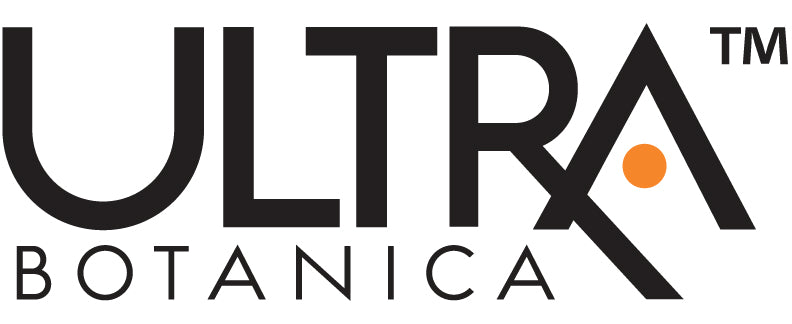The holiday season is creeping up on us. And with that season, plates of cookies appear at the office, and desserts adorn our refrigerators and pantries.
It feels like every gathering is overflowing with sugary temptations—the perfect storm for anyone trying to keep their blood sugar in check. You want to enjoy yourself, but that little voice in your head keeps whispering about blood sugar and weight and tricks that might help with both, like berberine.
It’s a constant balancing act. That’s why many people are turning to natural options for support—and berberine blood sugar benefits are gaining a lot of attention.
This simple plant compound called berberine could be exactly the steadying hand your body needs during the season of sweets.
What Is This "Berberine" Everyone's Talking About?
You’ve probably seen the name berberine popping up more and more—but what is it exactly?
Berberine isn’t a lab-made chemical. It’s a natural alkaloid compound found in the roots, rhizomes, and bark of plants like goldenseal, barberry, and Oregon grape.
For centuries, these herbs have been staples in traditional Chinese and Ayurvedic medicine, mainly used to treat diarrhea and gut infections—long before modern science began to take notice.
Today, researchers are confirming its effectiveness. The most common form used in supplements and studies is berberine hydrochloride, prized for its stability and bioavailability.
Your Pressing Questions About Berberine Blood Sugar
You’re curious—and that’s smart. When it comes to your health, you deserve real answers. So, let’s get straight to what you really want to know about berberine blood sugar support and how this natural compound may help you manage healthy glucose levels.

How Does Berberine Work on Blood Sugar?
Here’s where berberine blood sugar support gets interesting. Berberine works in several ways to help keep glucose levels steady.
It activates an enzyme called AMP-activated protein kinase (AMPK)—your body’s metabolic master switch. When AMPK turns on, it signals cells to absorb more glucose from the blood and use it for energy.
This process improves glucose metabolism, making berberine one of the most effective natural hypoglycemic agents available—all in an easy, oral form with no injections needed.
Does Berberine Improve How Your Body Uses Insulin?
Yes—and this is another key piece of the berberine blood sugar puzzle. Many people with high blood sugar struggle because their cells stop responding to insulin, in a condition called insulin resistance.
Think of insulin as the key that unlocks your cells to let sugar in. When resistance sets in, that lock sticks, and it takes more insulin to get the job done.
Berberine helps “oil the lock” by improving insulin sensitivity, allowing cells to respond better and absorb glucose more efficiently. This means your body can manage blood sugar with less effort, and without overproducing insulin.
Will Berberine Help Lower My A1C?
Your A1C number gives you a big picture of your average blood sugar levels over the past two to three months. It reflects your long-term trend, not just a single day's reading, which helps you get an overall view.
Since berberine helps manage your daily blood sugar levels, it makes sense that it could impact your A1C on some level. The science from many clinical trials supports this idea.
Berberine helps your body manage both fasting glucose and postprandial blood glucose, the post-meal blood sugar spike.
A comprehensive review of numerous studies on human subjects found that the berberine group consistently showed significant reductions in A1C levels.
The data shows that berberine reduced these markers, suggesting its day-to-day effects on glycemic control can truly add up over time.
How Quickly Does Berberine Lower Blood Sugar?
Everyone wants quick results, but berberine blood sugar support takes time to build in your system. It’s a marathon, not a sprint... like most natural products.
Some people notice small improvements in post-meal blood sugar within a few weeks, but meaningful changes in A1C and fasting blood glucose usually appear after about three months, as shown in clinical trials.
Consistency is key—taking berberine daily helps your body gradually stabilize blood sugar, building a strong foundation for lasting metabolic health.

When Is the Best Time to Take Berberine?
Timing matters when it comes to berberine blood sugar support. The best time to take berberine is just before, with, or right after your meals, and especially meals containing carbohydrates. This lets berberine help your body manage the glucose from food right as digestion begins.
If your daily dose includes multiple berberine capsules, take one with each meal -- breakfast, lunch, and dinner -- to maintain steady blood sugar support throughout the day.
How Much Berberine Do I Need to Reduce Blood Sugar?
Finding the right berberine dosage is key for effective berberine blood sugar support—enough for results, but not too much. Most clinical trials use 1,000-1,500 mg per day, typically divided into 500 mg with each meal for optimal absorption and effect.
Always consult your healthcare provider before starting, to confirm the appropriate berberine dosage and discuss possible adverse events or gastrointestinal adverse effects, such as mild cramping or upset stomach.
These effects are usually temporary. And they're minimized with Protisorb™ technology, which improves absorption and makes berberine easier on the digestive tract.
Beyond Blood Sugar: Berberine's Impact on Overall Health
While berberine blood sugar support is remarkable, berberine's benefits reach far beyond glucose control. In multiple studies, berberine exhibited positive effects on overall metabolic health, including better cholesterol management and potentially weight support.
These wide-ranging benefits make berberine a powerful, natural option for promoting long-term wellness.
Managing Cholesterol and Blood Lipids
Maintaining healthy cholesterol is vital for heart health, and berberine blood sugar support also extends to lipid balance.
A review of Chinese literature and global clinical trials found that berberine showed significant reductions in total cholesterol and low-density lipoprotein cholesterol (so-called “bad” cholesterol), while modestly increasing high-density lipoprotein (“good” cholesterol).
These studies also noted lower plasma triglycerides, another cardiovascular risk factor—making berberine a valuable natural tool for comprehensive metabolic support.

Supports Healthy Weight and Liver Function
For many, maintaining a healthy weight is an important part of overall wellness—especially during the holidays when temptations are everywhere, and hard to resist.
Research on diet-induced obese subjects, including obese rats, and human clinical trials shows that berberine exhibited modest but measurable reductions in body
This effect is likely tied to berberine's activation of the AMPK enzyme, which helps regulate energy balance. While not a magic pill, berberine blood sugar support can help complement a healthy lifestyle.
Clinical reports also note neutral or even beneficial effects on liver enzymes such as gamma-glutamyl transpeptidase (GGT), suggesting berberine may support overall metabolic and liver health.
Summary of Berberine’s Potential Health Effects from Research:
-
Fasting Blood Glucose: Berberine decreased FBG significantly.
-
A1C (Glycated Hemoglobin): Berberine reduced A1C over several months.
-
Total Cholesterol: Helps lower total cholesterol levels.
-
LDL Cholesterol: Reduces low-density lipoprotein cholesterol.
-
Triglycerides: Lowers plasma triglycerides.
-
Weight & BMI: May support modest weight change.
Finding the Right Berberine for Your Journey
So you’ve decided to try berberine... but a quick search reveals an overwhelming range of options. How on earth do you choose the best berberine supplement for you?
Supplement quality matters. Look for trusted sources that ensure purity and potency.
Because berberine is naturally hard to absorb, formulas using Protisorb™ absorption technology offer a major advantage.
Everyone’s health journey is unique, which is why we offer two options to help you find the best fit for your needs.

Pathway 3: Pure and Focused Berberine Support
Maybe you're looking for a simple, direct approach. You've done your research on berberine. You are convinced it's what you want to focus on.
Pathway 3 is designed just for you. It's a pure berberine formula, utilizing Protisorb absorption technology . This gives you the targeted support of this one powerful plant compound.
Think of Pathway 3 berberine as the star player on your team. It's perfect if you want to add berberine to your existing wellness routine. It is also great if you're just starting and want to see what this single ingredient can do for you.
UltraMetabolic: A Team of Metabolic All-Stars
Perhaps you feel you need a more comprehensive strategy. You know that managing metabolic health involves more than just one thing. You want a team of ingredients working together.
That is exactly what UltraMetabolic provides. Berberine is a key component of this formula, doing its important work. But it is not alone.
In UltraMetabolic, berberine is combined with other supportive ingredients that help with optimizing metabolism and blood sugar. This formula gives you a broader range of berberine blood sugar support because of the added supporting ingredients. It's perfect for the person who wants to cover all their bases in one convenient product.
Conclusion
Staying healthy through the holidays can be challenging, but you’re not alone. Nature offers powerful support—and research shows berberine is one of the best allies for managing those holiday indulgences as well as everyday eating.
Berberine blood sugar support helps activate your body’s metabolic “master switch” and improve insulin sensitivity. Setting clear goals for your berberine blood sugar routine helps you stay in control of your health.
Every small step toward better wellness is a win. Whether you choose a targeted supplement or a comprehensive formula, you’re making a smart choice to support your body—during the holidays and beyond.

Frequently Asked Questions
1. Does berberine really lower A1C—and how fast?
Yes, many clinical studies report meaningful reductions in A1C and fasting glucose with consistent use. Most people need 8–12 weeks to see clear movement on A1C (daily readings may improve sooner).
Typical study doses are 1,000-1,500 mg/day split between 2 or 3 meals. Focus on protein and high-fiber foods such as vegetables for steadier post-meal blood sugar.
2. What’s the best time and dose to take berberine for holiday carb-heavy meals?
Take berberine just before, with, or right after meals, especially those that include carbs. Most people use 1,000-1,500 mg/day divided between meals. Consistency (daily use through the season) matters more than timing perfection.
3. Pathway 3 vs. UltraMetabolic—what’s the difference and who should choose which?
-
Pathway 3 is a pure berberine formula using ProtiSorb™ absorption technology for focused, single-ingredient support. Great if you want to test berberine alone, already have a supplement stack, or prefer simple + targeted.
-
UltraMetabolic is a multi-ingredient metabolic formula that includes berberine plus complementary nutrients for a broader approach to glucose, lipids, and energy. Ideal if you want an all-in-one daily solution.
Pick Pathway 3 if you want to isolate berberine’s effect or fine-tune dose. Pick UltraMetabolic if you’d rather take one product that addresses multiple metabolic levers.
4. What is ProtiSorb™—and does it really improve berberine absorption or stomach comfort?
ProtiSorb™ is a protein-scaffold delivery that helps difficult-to-absorb botanicals like berberine be taken up into your bloodstream more efficiently. Users often report it’s gentler on the stomach than some pepper-based boosters.
5. What other holiday blood sugar tips can help me support healthy blood sugar levels and avoid weight gain?
You can enjoy enhanced health benefits by combining berberine's hypoglycemic effects with lifestyle holiday tips such as:
- Strength training, which helps shuttle glucose into the cells better.
- Walk after meals, even if it's only a 5-10 minute walk, which aids glucose uptake. If you're at a party, dance after eating. Works the same way.
- Focus your food intake on proteins and high-fiber foods, which control sugar levels far better than carbs do.
- Stop eating when you're 80% full, as is practiced in the Blue Zones, where obesity and chronic health problems are unusual.
6. Is berberine safe—and who should avoid it or speak with a clinician first?
Berberine blood sugar support is generally well-tolerated, but talk to your healthcare provider if you:
- Take blood thinners, diabetes medications, other oral hypoglycemic agents, or multiple prescriptions.
- Are pregnant, trying to conceive, or nursing.
- Have liver concerns or are planning a surgery (supplements are often paused beforehand).
Start slow, take berberine with meals, and discontinue if you experience symptoms.





Share:
Nighttime Outdoor Safety: Safety Tips for Fall
FSA vs. HSA: Which is Best? Plus, a Year-End Spend-Down List